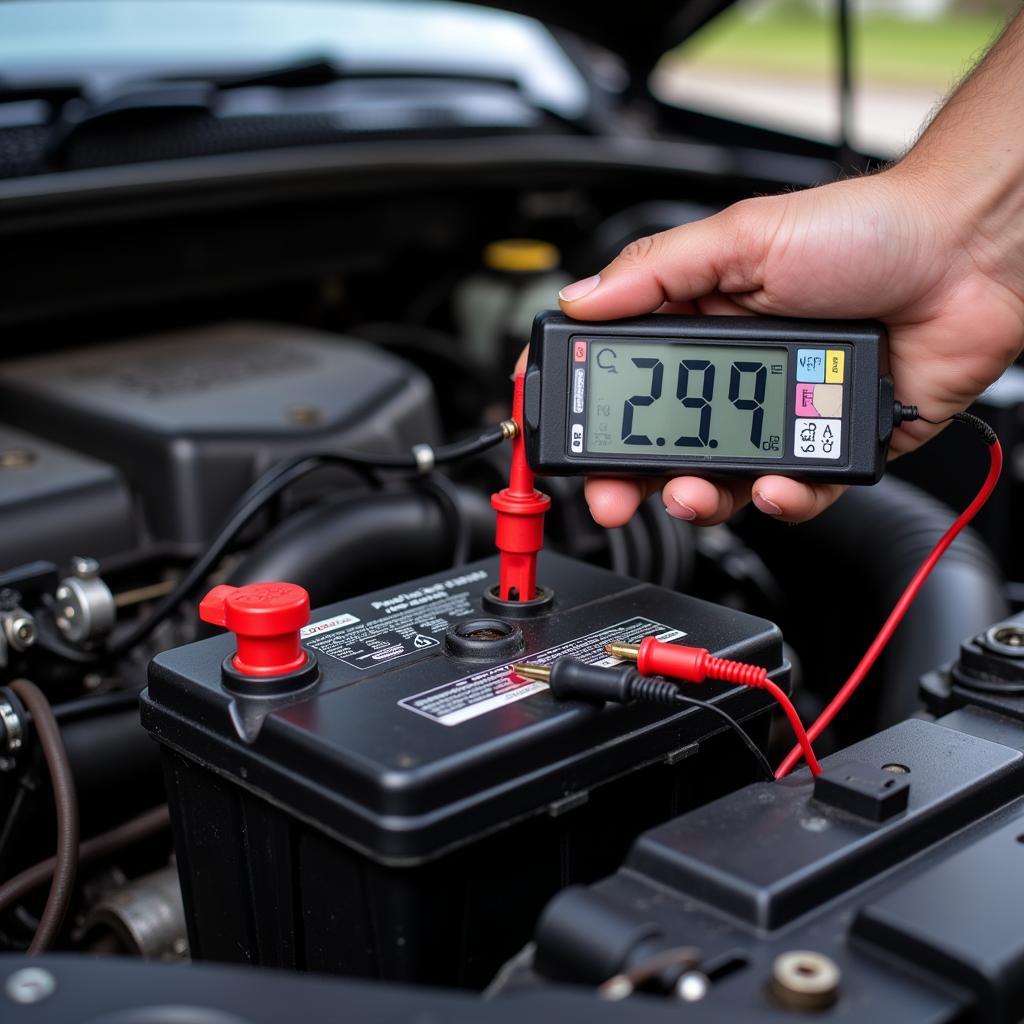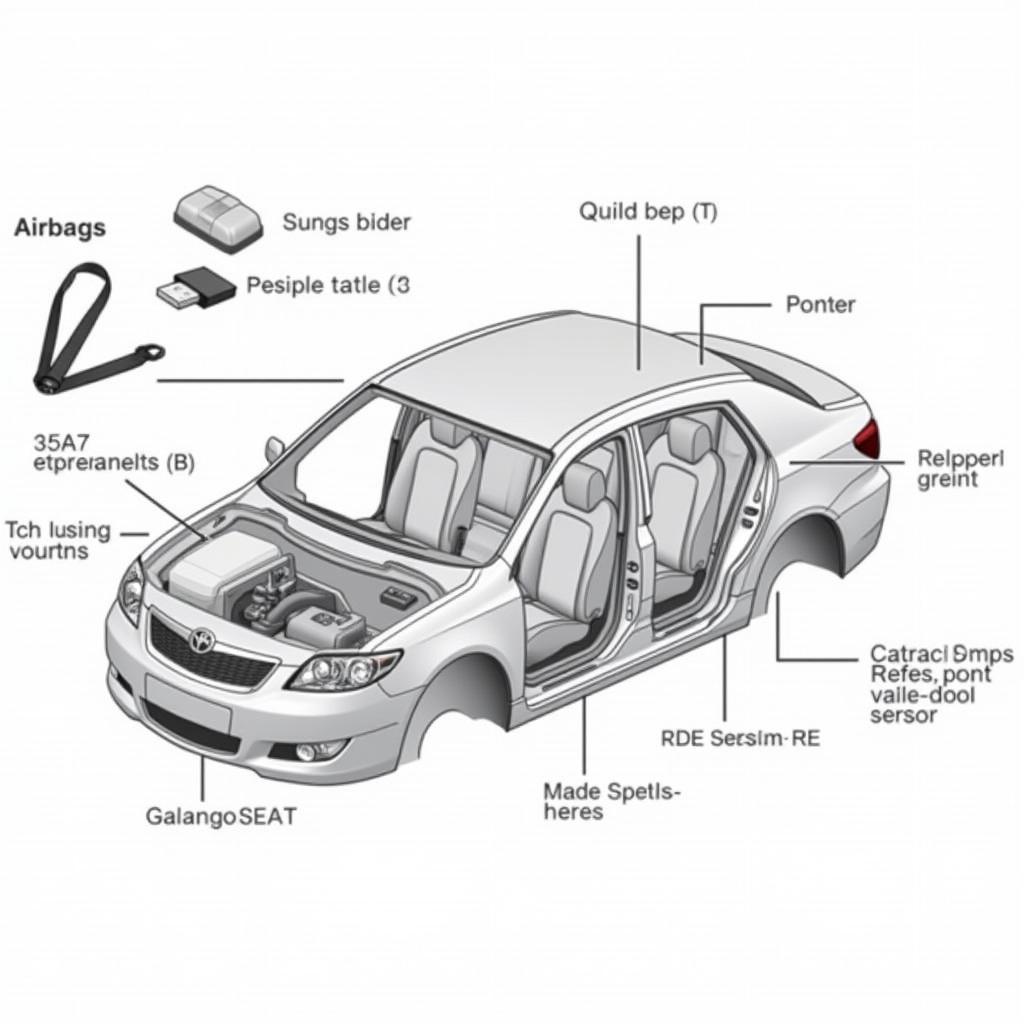A glowing brake warning light on your 2007 Ford Fusion’s dashboard is a clear sign that something isn’t right with your braking system. Ignoring this warning could lead to serious safety risks. This comprehensive guide will walk you through the possible causes of a brake warning light in a 2007 Ford Fusion and provide potential solutions to get you back on the road safely.
Understanding the Brake Warning Light
Your Ford Fusion’s brake warning light is part of a critical safety system. When illuminated, it indicates a potential issue that requires your immediate attention. There are a few reasons why this light might turn on:
- Low Brake Fluid: This is the most common culprit. Brake fluid transmits the force from your foot on the brake pedal to the brake pads, enabling your car to stop. A leak in the system can lead to low fluid levels, triggering the warning light.
- Worn Brake Pads: Brake pads naturally wear down over time with use. If they wear too thin, the brake warning light will illuminate to alert you that it’s time for a replacement.
- Faulty Brake Sensor: Your car has sensors that monitor the brake system’s health. If a sensor malfunctions or detects an issue, it can trigger the warning light.
- ABS Issue: If your Anti-lock Braking System (ABS) encounters a problem, the brake warning light may come on along with the ABS warning light.
Diagnosing the Problem
Identifying the root cause of the brake warning light is crucial for effective repair. Here’s a step-by-step guide to help you diagnose the issue:
- Check Your Brake Fluid Level: Park your car on a level surface and locate the brake fluid reservoir under the hood. The reservoir will have a “Minimum” and “Maximum” marking. If the fluid level is below the “Minimum” mark, you likely have a leak.
- Inspect Brake Pads: If you’re comfortable with basic car maintenance, you can visually inspect your brake pads. Look through the spaces between the wheel’s spokes for the brake pads. If they appear thinner than 1/4 inch, it’s time for a replacement.
- Listen for Unusual Noises: When applying the brakes, pay attention to any unusual sounds. Grinding or squealing noises often indicate worn brake pads.
- Note Your Driving Experience: Does your car pull to one side when braking? Do you need to press the pedal further down than usual to stop? These driving symptoms can point towards specific brake system issues.
Solutions and Repairs
Once you’ve identified the likely cause of the brake warning light, you can explore solutions.
Low Brake Fluid: If you suspect a leak, it’s essential to have a professional mechanic inspect the brake lines and components to locate and repair the leak. After the repair, the brake system will need to be bled and refilled with fresh brake fluid.
Worn Brake Pads: Worn brake pads require immediate replacement. You can replace them yourself if you have the necessary tools and experience. However, it’s generally recommended to have a professional mechanic handle this crucial safety component.
Faulty Brake Sensor or ABS Issue: These issues require specialized diagnostic equipment and knowledge. Take your car to a qualified mechanic or dealership to diagnose and repair any sensor or ABS problems.
“Ignoring a brake warning light is like playing with fire. It’s always best to err on the side of caution and have your braking system checked by a professional.” – John Miller, ASE Certified Master Technician
Preventing Future Problems
Regular maintenance is key to preventing future brake warning light issues:
- Regular Brake Fluid Checks: Inspect your brake fluid level at least every 3,000 miles or during your regular oil changes.
- Timely Brake Pad Replacements: Consult your owner’s manual for the recommended brake pad replacement intervals. Don’t wait for the warning light to come on before addressing worn pads.
- Regular Vehicle Inspections: Schedule annual or bi-annual vehicle inspections to catch potential issues early on.
Conclusion
The brake warning light in your 2007 Ford Fusion is a critical safety indicator. Addressing the underlying issue promptly ensures your safety and prevents further damage to your vehicle. Remember, regular maintenance and a proactive approach to your car’s braking system are crucial for safe and worry-free driving.


